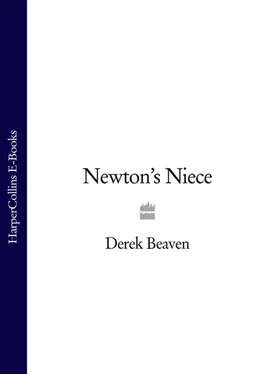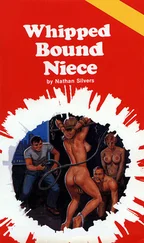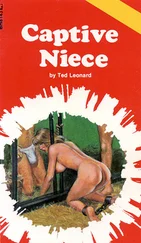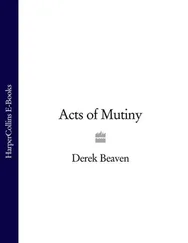1 ...7 8 9 11 12 13 ...26 I look back through memory’s peephole. This laboratory, the place where I learnt my science, has no modern counterparts. No long mahogany school benches here; no gas points nor curving slender taps; none of those tripods and burners, and cupboards full of flasks; none of the distinctive microsensitive balances, preserved in glass cases; nor instant electricity piped down red cables from a suspended matrix. Not here either the functional fluorescent hum of the research lab, with its white coats and computers. No spectacles parked on the bridge of a painstaking nose. No female student glued by the eyelids to a microscope. Not a decerebrate cat in sight.
In fact he kept home for an intact and enormously well developed tomcat who used to snuggle up by day near whichever of the furnaces was alight. I had always disliked the cat, but at least it went out at night. Mr Newton’s cat was an amatory legend of the college, if not the city: a feline Don Giovanni who had his own cosy hell to return to through one of the draught holes in the skirting. He would also follow my uncle up to his chamber and slip into a haven hotter still. And that was the place of his body-building activities. Simply, he ate most of my uncle’s meals; for, as I said before, Isaac rarely troubled the company in Hall, and, if he remembered, ordered food to be sent up to him. But because his custom was to become totally absorbed in his project of the moment, he’d take merely a bite or two before another idea struck him, and then he’d dash back to his metals or his notes or his instruments. So the cat profited.
But in the garden room – the laboratory – there was usually no food, and the cat went there for solitude and repose. From the outside, the laboratory looked like a little negative mimicry of the College itself, which was built in a square around a magical fountain. So the laboratory sat in my uncle’s private garden as if in a tiny quadrangle. And if it looked oddly shaped and hardly able to compose itself under its tiled roof, this was because its ground plan was an exact and secret replica of Solomon’s Temple. Moreover, the garden – which in my memory looks like any number of formal ornaments of the period, with its mathematical division into four quarters and its little intricacies of flower beds – this too had its secret. For it was a representation of Eden, being planted with medicinal herbs from all the four continents we then knew of, each in its geographical set, and watered by special Rivers of Paradise that Uncle had ducted from the roof of the chapel, so that when it rained he might as Adam, or Solomon, or Jesus look out over the unfallen book of Nature. Apples, even, that Newtonian fruit, grew neatly pruned and disciplined along the walls on either side of the entrance. It being September, those that there were on the little trees glowed with ripeness.
Inside, and viewed from the Corner of Fermentation, this laboratory was what we should call a study cum sitting-room cum garage, albeit in Biblical configuration. It had three elaborate fireplaces, built around a central chimney. There was also a clock on a bracket and the remains of the tall water-pressure cabinet with which he’d played a density joke on a carpenter. On the stone floor there were three tables and some oaken chairs all covered with books and curiosities. There was one of his famous telescopes on a stand, and a number of other mechanisms in brass and leather which I didn’t like the look of then, and can’t put a name to in the recalling. Two pendulums made like delicately swinging miniature cupboards hung from the roof timbers. And he’d built a mobile close stool to save time. But above all there were his tools and his vessels. Everywhere lay the implements of a master craftsman: chisels, pliers, saws, tongs, ladles, scribers, grinders, a treadle lathe, bellows, gauges, rulers, compasses, hammers, drills; and everywhere else there were crucibles, flasks, coppers, cannikins, leathers, leads, cauldrons and tubes. For he’d become above all a wonderful artisan; the apotheosis of all those energetic and ‘Puritan’ young men from the skilled trades who for decades before the civil war attended lectures and evening classes in practical arithmetic, geography, navigation, weights and measures – in short, mathematics – because they wanted to take destiny into their own hands. And thought they’d done it when a precisely ground cutting edge traced out a significant locus that terminated in some royal vertebrae.
But these young men married and were mercantile. If they somehow supplied a context for his activity they don’t explain his origins or singular obsessions, the most fraught of which was alchemy. What motivated Mr Newton, Professor Newton even, to this solitary passion of Prima Materia ? I, seeing him at that time through my wolf’s eyes, could tell something: that he was a stunned being.
It suits our view now to look back and see him as a superior brain. Having lived quite long and seen many, I wonder if there is such a thing. In those days anyway it would not have occurred to us to think so. As samples of tissue go, brains are all much of a muchness. If we’d had the word maybe we would have seen ourselves then as aerials , that might through grace receive God’s messages. We resonated; we were attuned; we rode down signals with the angels. Intellect, and its dysfunctions, were visitations we permitted, were granted, or had imposed on us. And some of us were thought to have been instructed by devils.
In any case, what could be more intelligent than language itself? I have my own reasons for resisting the cult of Genius. I say my uncle merely made himself proficient in the codes that were newly developing then, and cross-fertilised them for the sake of his overriding purpose: to get back all the control his birth and treatment had stripped him of, and to blot out everything else.
His father died before he was born. He was delivered, so my mother told me, a little bloody foetus that no one expected to come to life. They put it aside to be dealt with later. It lay, cold, and further out than the remotest galaxies for half an hour or more, which it might have experienced as longer than an ice age. At first, no one noticed it had started to move. Eventually the bundled mess in the corner turned into a baby, and they began with surprise to push pap into its mouth.
When little Isaac was no more than an infant, his mother, my grandmother, married Rector Smith, for financial security, on the condition that she left the child at Woolsthorpe. Rector Barnabas Smith, almost the squire, did not suffer the little children … Isaac was only allowed to make visits, brought over by his grandmother. Was this bar sufficient motivation for his whole later career? I doubt it. But I tell you this: as soon as he was old enough he tried to burn down their house.
He was an angry, isolated boy, though not a complete wolf; strong enough to suffer no fools and find few friends. He made models -windmills and other curious engines – from being inquisitive and much alone. He sought with miniatures the secrets of power and control. And when he was fourteen he forced himself to make friends with the girls at his lodgings in Grantham where he’d been sent to the Grammar School. But that didn’t last, since they were out for more, it seemed. Love and so on. So he became difficult and solitary again, because the womb sang of interstellar distances, rejection and all he could not speak of.
Then circumstances put money his way, together with a sponsor, so that by a train of associated events he arrived at Cambridge, and was as lonely and powerless as he’d always been. The great Alma Mater fornicated and drank and prayed and idled her way along, leaving him little, hurt and open again, unnoticed in this corner for a year. He survived, convincing himself that by austerities he might become pleasing to God.
Читать дальше












